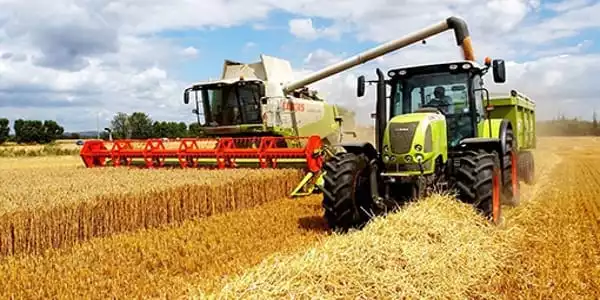In Sub-Saharan Africa, a rethinking of irrigation is improving food security, reducing water waste, and lifting people out of poverty. Agriculture experts from The Australian National University (ANU) have collaborated with government agencies and non-governmental organizations (NGOs) in Sub-Saharan Africa to improve irrigation schemes and increase crop production. The work of the researchers improves food security, reduces water waste, and lifts people out of poverty.
“This simple reboot of irrigation schemes made up of small farms could help stamp out poverty in farming communities around the world,” ANU Fenner School of Environment and Society Professor Jamie Pittock said.
The ‘Transforming Irrigation in Southern Africa’ project empowers farmers by providing them with the knowledge and tools they need to consistently grow high-yielding and profitable crops while using the least amount of water. The study was published in the journal Nature Food.
“Hundreds of millions of dollars have been invested in infrastructure to support irrigation systems and grow crops that return a profit,” Professor Pittock explained. “However, crop yields in Africa are very low and often not much better than the dry land farms around them.”
Africa has one of the most rural populations that rely on agriculture for a living, but irrigation schemes have historically been a failed sector across the continent. This simple reboot of irrigation schemes made up of small farms could help stamp out poverty in farming communities around the world.
Jamie Pittock
“Africa has one of the most rural populations that rely on agriculture for a living, but irrigation schemes have historically been a failed sector across the continent. Our interventions have focused on restarting these failed irrigation schemes so that they can produce food on a consistent basis, are profitable, and lift people out of poverty.”
This system reboot entails providing farmers with simple-to-use tools developed by CSIRO to assist them in determining whether the soil in their fields is wet enough and contains enough nutrients to grow a high-yielding crop. This allows farmers to make their own decisions rather than relying on government assistance.
This new intervention has proven to be more effective than previous government-led crop-growing methods, in which farmers were advised to apply specific amounts of fertilizer to grow crops such as maze or corn.

“What we discovered was that governments were not assisting farmers in doing a simple cost and profit loss assessment of the crops they were growing, so we provided farmers with basic field books to help them calculate what it’ll cost to grow a crop and the necessary labor required, as well as figure out how much income they’ll get from growing that crop,” Professor Pittock explained.
Professor Pittock claims that these simple but effective interventions have been “revolutionary” because farmers are using less water. “Previously, they were dumping too much water on their fields, effectively drowning their crops. Knowing how much water is required to grow their crops means farmers are conserving water and saving up to two days of labor per week, which can be spent on other income-generating activities “He stated.
“There is also more water to support other farmers and rivers. Farmers are starting to work together to share resources and help one another maximize food production in the region now that they are no longer fighting over water. Farmers are employing people in their communities as a result of this process, which is providing a much-needed boost to the economy.”
While this intervention has been “extremely successful” in assisting farmers in growing food, Professor Pittock believes that producing high-yielding crops means nothing if farmers are flooding the market with product, driving down the price of that food to the point where it is not profitable for them to grow it. To address this issue, ANU researchers facilitated conversations between farmers and buyers in order to provide them with market insight and inform their farming decisions.
“When the farmers start to have that dialogue with the buyers, they can then work together to negotiate a planting schedule so they’re continually producing crops that are in demand,” Professor Pittock said.
“Once the farmers understand what quality of product the buyers want and expect, they suddenly get much higher prices for their product.” We’ve also introduced the farmers to seed and fertilizer suppliers, and now that they’re working together, the farmers are starting to buy quality inputs in bulk, which is lowering their overheads because they’re paying less than they were when they were buying only for themselves.”
“We’ve since polled the farmers we’ve worked with, and they’ve told us that with the extra cash they now have, they’re buying more nutritious food for their families, investing in healthcare, and paying for their children’s education. These types of techniques for empowering farmers with knowledge have the potential to make a significant difference in terms of promoting more sustainable development and will be critical in assisting the poorest members of society in rural areas to achieve better livelihoods.”















